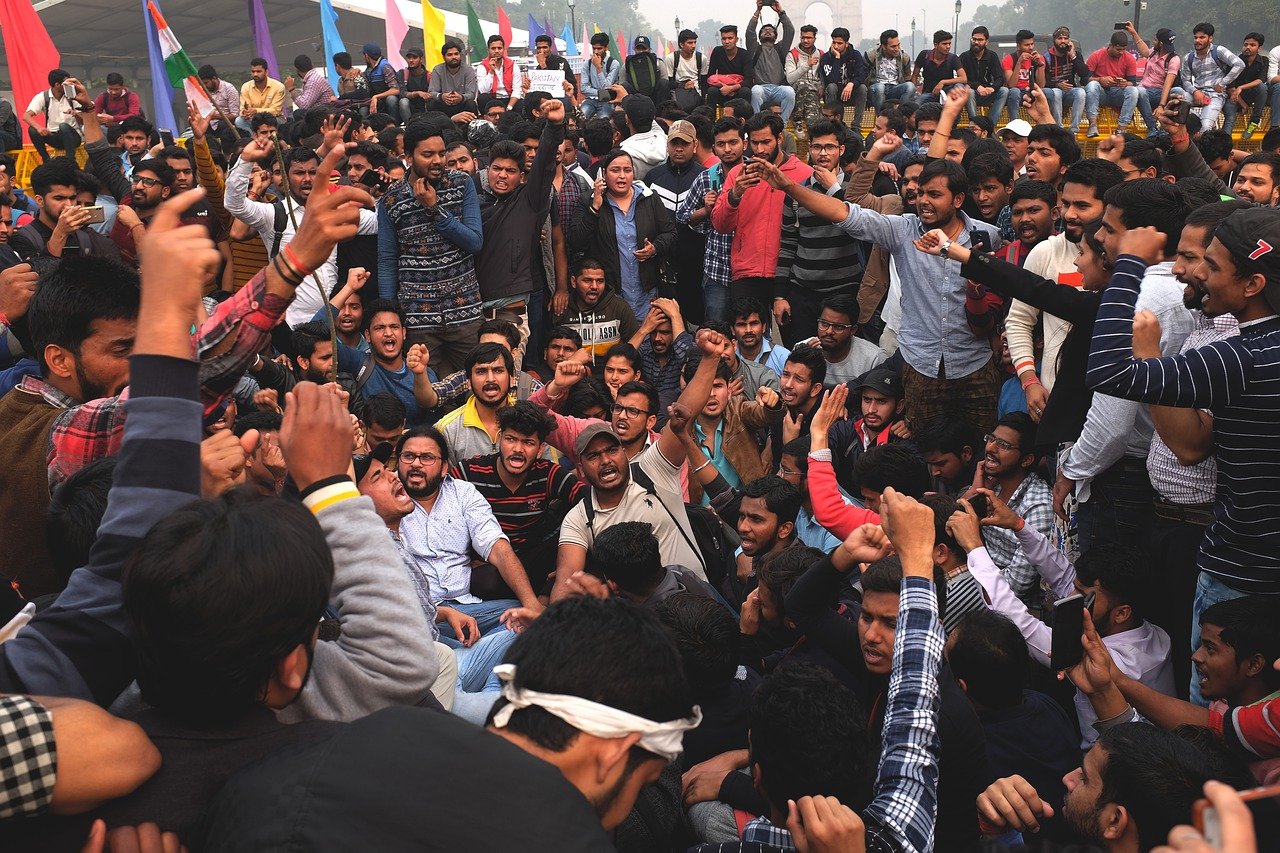Unlike dynastic politicians in the North, Jharkhand’s Hemant Soren and Tamil Nadu’s MK Stalin managed to win recent state elections. By doing so, they busted the myth that Indian politics is now turning against dynasty politics. And the reason they succeeded was ideological honesty and clarity.
The 2014 General Elections radically changed the landscape of Indian politics. It destroyed the Congress party’s claim to be the ruling party of India, made Hindutva socially acceptable, and handed a non-upper-caste prime minister a majority.
Yet, the most talked-about change that was brought about by the Narendra Modi wave was its challenge to ‘dynastic politics’. Soon enough, the Bharatiya Janata Party (BJP) made nepotism a staple talking point in its crusade against the Congress party. Today, eight years later, their grip over the Hindi heartland is unchallenged, as they have successfully labelled every major opposition party in the region as a family-run empire.
This trend of voting against dynasties isn’t limited to the Hindi-belt states. The Aam Aadmi Party (AAP) in Punjab against the Congress party and the BJP in Karnataka against the Janata Dal (Secular) (JD(S)) used similar anti-privilege rhetoric to throw out incumbent governments.
And it’s not just politicians who have manufactured this public opinion; voters themselves don’t want parties to have leadership based singularly on family ties. One of the key reasons why the Telugu Desam Party (TDP) lost power in Andhra Pradesh was because Chandrababu Naidu pushed his son as leader of the party. Jagan Reddy, who won the race, was also the son of a former chief minister, but he had launched his own party and thereby earned himself the tag of being self-made.
There are currently only three direct dynasts who are both running their parties and are also chief ministers of their respective states. They are Uddhav Thackeray in Maharashtra, Hemant Soren in Jharkhand, and MK Stalin in Tamil Nadu. Out of the three, only the latter two have captured power on their own, while Thackeray had to resort to a post-poll alliance. The other dynasts have either started their own party or have been airdropped by the party’s high command.
So, why do these two states defy the trend? First, being a product of nepotism was not a disqualifier. While optics and noise suggest that there’s a great paradigm shift against the domination of political families, the reality is otherwise.
Both in national and regional parties, belonging to a certain family always helps one’s case. According to a report by Bloomberg, while smaller parties tend to have more dynastic MPs as a percentage, it was national parties that pumped up the volume. The 16th Lok Sabha (2014-19) saw the BJP have 20 and the Congress eight dynastic MPs; these were only members whose father, mother or spouse preceded them in the Lok Sabha, so the actual number could be higher.
Second, the primary concern of voters is the commitment of a leader to the cause of the party and not who the said leader is. The fall of the Bahujan Samaj Party (BSP) under Mayawati is an example. A people-made nationally loved Dalit identity party that once had an iron fist on Uttar Pradesh politics was reduced to single seats in the recent state elections. The reason is that it stopped working for the people it claimed to represent, or as one commentator put it, the party went from a Bahujan (Dalits and minorities) organisation to a Sarvajan (everyone’s) organisation. Mayawati is a revered Dalit icon, but when she distanced herself from her people and the cause of the BSP, her party started losing.
MK Stalin and Hemant Soren manage to separate themselves from scions in the North by continuing what their respective parties stood for. Soren’s Jharkhand Mukti Morcha (JMM) was a movement-turned-political party that focused on the welfare of the tribal community. Under Soren, despite having a wide social base, the party has not shied away from asserting its tribal identity.
Soren, like many lineage politicians, was inheriting a complicated legacy. But in the process of reinventing his party’s image, he didn’t forget its purpose. Therefore, his campaign in the 2019 Jharkhand state elections, which focused on local problems, worked.
Compare that to his ally Rashtriya Janata Dal’s (RJD) campaign under Yadav scion, Tejashwi, in the Bihar elections a year later. The 2020 Bihar state elections saw a spirited fight between the National Democratic Alliance (NDA) led by the Janata Dal (United) (JD(U)) and the Mahagathbandan alliance led by RJD. JD(U)’s Nitish Kumar was a three-term incumbent and was expected to lose. However, on the day of the results, NDA squeaked out a narrow win.
Despite putting up a charged campaign on local issues and giving the BJP juggernaut a run for its money, Tejashwi failed to secure a key loyal voter base — the Muslims. This was because he failed to confront Hindutva radicalism head-on. The RJD’s essential politics is rooted in creating a safe space for minorities — the famous Muslim + Yadav combination. It was Lalu Prasad Yadav who had stopped the BJP’s deadly Rath Yatra. By not addressing the threat that minorities face under Hindutva rule, Tejashwi betrayed one of the key talking points of his party and thus cost the alliance important seats.
While the Jharkhand elections had lessons for regional parties, the Tamil Nadu elections had a message for the Congress leadership. When MK Stalin was accused of being a dynast, he embraced the tag instead of trying to distance himself from his family name, retorting that he wasn’t just a political successor but was also ideologically committed to his party’s legacy.
Compare this to how Rahul Gandhi has dealt with questions of nepotism. Rahul Gandhi has not only failed to mention his family’s ideological consistency but has even failed to defend Jawaharlal Nehru’s contribution to the making of modern India. Instead of reinforcing his ideological commitments, he has tried to please the voters by flaunting his Hindu-ness. Stalin, on the other hand, has kept his party rooted in its core principles, making a few tweaks, but in essence, sticking to the talking point of social justice — thus modernising his organisation and making it a relevant force.
In essence, both Soren and Stalin have managed to capture power by being honest to the tenets of their party and incorporating political messaging which is in tune with the demand and expectations of today’s voters. They have thus successfully negated the tag of being privileged dynasts who are not aware of ground reality.
Paarth Pande is a freelance journalist. He started his career as a combat sports writer before shifting to commentary on politics and elections. He has completed his graduation in journalism from St Xavier's, Mumbai. His work has previously been featured on Standpoint India, Sportskeeda, Cagesidepress, Fan Sided etc.


